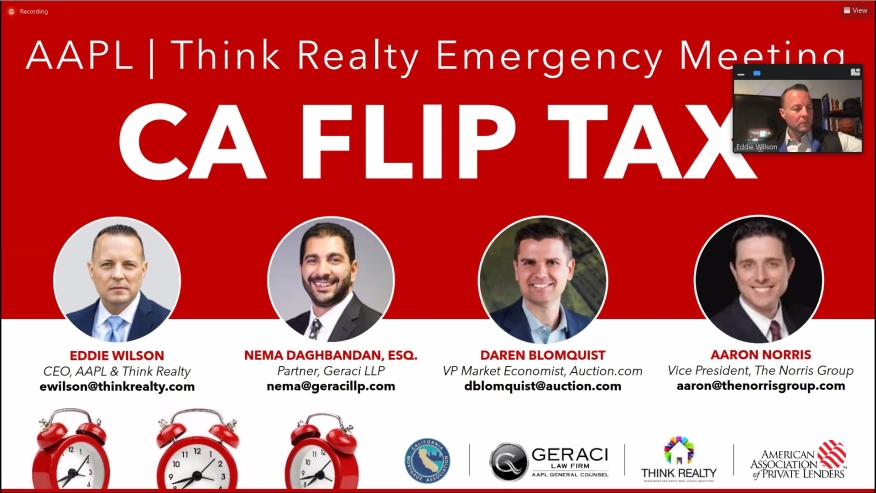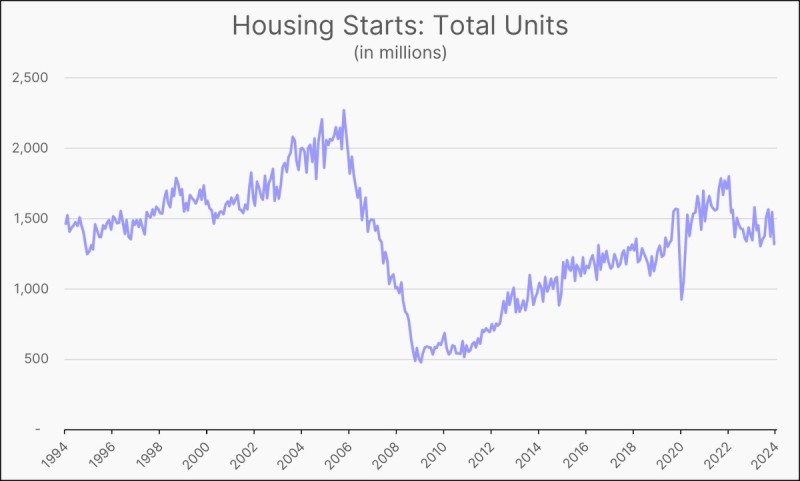
Calif. Investors, Lenders Mobilize Against Speculation Act

'They’re looking to decimate the industry without realizing the result of that decimation': Nema Daghbandan, a partner in Geraci LLP, said.
The private investor and real estate agent community swiftly mobilized this week against legislation in California that would add a 25% capital gains tax on any residence sold within three years of purchase.
The proposed tax is aimed at curtailing investor activity, but opponents say it would affect regular homeowners.
The legislation was proposed by San Diego Assemblyman Chris Ward, with the goal is to create a disincentive for equity investors, freeing up homes for people buying for personal use. The investor community, however, said during an "emergency" virtual meeting Thursday that it would impact every homebuyer in the state.
“This is a pretty broad and wide net that they’re casting here,” said Nema Daghbandan, a partner in the law firm Geraci LLP. “Outside of your first-time homebuyer, this is a tax on you if you are a homeowner in California.”
“Your average homeowner who already owns a home and moves to the next home, they are stuck in their home for seven years,” Daghbandan said. “They can’t sell because they’re going to get hit with a giant tax that’s going to eat up the equity in their home.”
He said the problem in the California real estate market is an inventory problem and the legislation doesn’t solve that problem.
Daghbandan said investors are taking “substandard housing, getting it into a liveable position, increasing the equity of all the local neighborhood – really advancing these communities. They’re doing the work the legislators want them to do.”
He asked lenders on the call to reach out to the real estate investors who borrow from them and get them to tell their stories to lawmakers. He said it’s unclear whether it would apply to lenders who lend in this arena when they receive the property back.
He said it will impact all residential housing, including mixed-use and multi-family homes. There are few exceptions to the legislation, including estates and first-time home buyers.
Taxes collected from short-term sales would be distributed to cities, schools, transportation, and affordable housing funds. Daghbandan pointed out that only 30% would go to affordable housing and that it’s unclear how that affordable housing would be constructed.
He added that this is not a California-specific issue. He said similar legislation has been proposed in Florida and New York.
“As these state issues pop up and show other states what’s possible, it really creates a waterfall affect,” Eddie Wilson, CEO of AAPL & Think Realty, said. “If something like this were to pass in the state of California, certainly a New York or Illinois might follow. So we have to be really careful to fight these on the terms that have been given.”
“We think this is good intentions without an understanding of how this will play out,” Daghbandan said.
Real estate investors say they are not the bad guy here.
“They’re looking to decimate the industry without realizing the result of that decimation,” Daghbandan said.
Daren Blomquist, vice president Market Economist at Auction.com, said the investors are buying at 63% of after-repair value on average and then reselling at 97% of after-repair value, so they’re selling at close to market value.
“They’re adding value to these properties through renovations,” Blomquist said.
He said the average time between investors buying the property to when they’re reselling the property is around 262 days.




